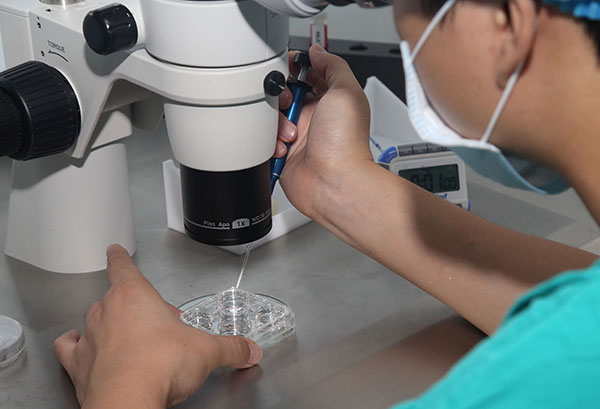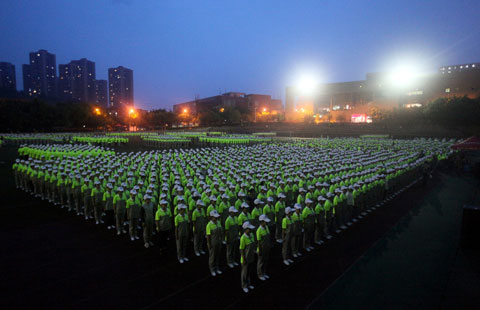More Chinese women freeze their eggs overseas: NYT
By Song Wei (chinadaily.com.cn) Updated: 2016-09-01 11:24 |
|
A doctor thaws frozen eggs at the Third Affiliated Hospital of Guangzhou Medical University in Guangdong province in July. Zou Wei / for China Daily |
A growing number of single Chinese women are heading overseas to freeze their eggs as a way to keep options open and control the pace of their lives, New York Times (NYT) reported on Wednesday.
There has been a 10 to 15 percent annual increase in demand for such services in the US in the last three years, the report said.
Most of the clients are affluent and well-educated Chinese women in their 30s. In the United States, egg freezing typically costs between $11,000 and $16,000, and annual storage fees range from $450 to $600.
More consultancies have begun to capitalize on the trend, providing services to "assist clients with visa applications, airport pickups, housing, translators, even Chinese-speaking drivers".
Some American clinics have even set up offices in China. Six doctors now work at HRC Fertility, a California-based chain of clinics, which now has offices in 10 Chinese cities.
However, NYT said the rising popularity of the procedure among women is not yet matched with outcomes.
The report cited figures from the Society for Assisted Reproductive Technology, from 2009 to 2014, the number of egg-freezing cycles in the United States rose from 568 to 6,165. For this same five-year period, however, the live birthrate from thawed eggs was just below 24 percent.
"Both the quality and quantity of a woman’s eggs decline over time, especially after the age of 34. And the procedure can have side effects."
While the option of egg freezing was unknown to most Chinese women until last year, when the actress Xu Jinglei posted on her micro-blog Sina Weibo that she had gone to the United Sates to have her eggs frozen in 2013 and Xu's account of her own experience set off a hot debate over access to fertility treatment and reproductive rights.
China prohibits fertility treatment for unmarried women, and assisted reproductive technologies are not available to single women and couples who are not in line with the nation’s population and family planning regulations.
Reproductive medicine is heavily regulated in China due to ethical concerns. For more than 30 years, the national family planning policy limited most couples to one child, in a culture where boys were favored over girls. Surrogacy and trading in ova are also illegal.
- Xi urges linkup on development
- China eyes multiple S&T breakthroughs in 5-year plan
- China adds 7 new free trade zones
- Xi encourages leading group to meet goals set for reform
- Foreigners to gain easier access to court verdicts
- Gaokao is gaining respect in the West
- Xi calls new PLA branch a key pillar
- Pollution fees could become law of the land
- New Xinjiang chief sees growth ahead
- Last two wanted for telecom fraud surrender










